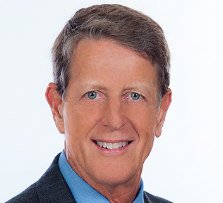
State: Calif.
Fink: Getting Fraud Out of the Workers' Compensation System: [2017-09-25]
The activity by fraudulent medical providers in California’s workers’ compensation system has been well documented, and the impact can be seen by the inflated costs for medical treatment and abundance of liens clogging the system.

Tony Fink
Over the past decade, studies have found injured workers being “swept into medical billing mills,” where they are prescribed unregulated medications and advised to undergo unneeded or high-risk surgery. It is estimated that more than $1 billion has been sought in reimbursement for fraudulent services.
California’s Legislature enacted Senate Bill 1160 and Assembly Bill 1244 last year to bandage the problem. In summary, SB 1160 places an automatic stay on liens filed by providers and physicians who are criminally charged with fraud. It also requires claimants to file a declaratory statement identifying the legal basis for any lien filed after Jan. 1, 2013.
If no declaratory statement was filed by this past June 30, then the lien was dismissed by operation of law.
Additionally, AB 1244 requires, in part, that medical providers and physicians be suspended if they are convicted of a felony or misdemeanor involving fraud, and that pending lien claims be consolidated and dismissed in a special lien proceeding unless it is proven that the liens did not arise from the conduct or activity that led to their suspension.
A list of suspended providers is posted on the Department of Industrial Relations’ (DIR) website.
Upon becoming effective on Jan. 1, the DIR and Division of Workers’ Compensation (DWC) have been consistent in implementing the new measures. By mid-August, more than 292,000 liens associated with more than 120 medical providers charged with fraud-related crimes had been stayed. The liens have an estimated value in excess of $1 billion.
Moreover, DWC has reported that nearly half (441,070) of lien claimants who are required to file a supplemental declaration (882,648) complied by the June 30 deadline.
Lastly, the DIR has published the names of more than 30 suspended providers and physicians, and has begun consolidating and dismissing their liens. For one physician with a notorious kickback conviction, this may result in the dismissal of nearly 6,000 active liens with an estimated claim value of more than $42.7 million.
California lawmakers have also recently agreed to increase funding to the DIR to assist with enforcing the regulations. The state’s budget for the new fiscal year includes $14.7 million apportioned to the DIR to employ 73 new staffers. The additional staff will administer anti-fraud measures and serve on the DIR’s proposed anti-fraud unit to act as the investigative and prosecutorial arm for provider suspensions, lien stays and lien-consolidation hearings.
Furthermore, the DWC contracted with the research group Rand Corp. to assess medical provider fraud within California’s work comp system, and propose comprehensive and strategic policy recommendations.
In its report issued in June, Rand recommended that the DWC use data analytics to identify fraudulent behavior; that employers be allowed to maintain control of medical care to prevent a run-up of medical bills on denied post-termination cumulative trauma claims; and that the DWC analyze the possibility of suspending providers based on a credible suspicion of fraud before criminal charges are filed.
The Commission on Health and Safety and Workers’ Compensation (CHSWC) will review the recommendations as early as mid-October.
In July, Judge George Wu of the U.S. District Court for the Central District of California issued a tentative ruling, stating he was inclined to grant an injunction to prohibit the DWC from automatically staying liens filed by providers who have been accused of fraud. Claimants asserted their procedural due process rights were violated, as it is unclear whether a procedure exists for accused providers to challenge the stay on their liens.
Judge Wu asked the parties to submit briefs on this issue prior to a hearing on Aug. 24, stating he had “serious concerns” about the alleged due process violations. No records from the hearing have yet been made publicly available.
In addition, lien claimants have identified a loophole in AB 1244’s application that allows those convicted of fraud a month or longer to collect on the liens prior to suspension. This is due to the procedure of suspending a provider following conviction: The DWC must issue notice of intent to suspend, the provider is given 10 days to request a hearing to contest the suspension; and a hearing is then held within 30 days.
One claimant convicted for his involvement in hundreds of millions' worth of fraudulent billings used this period to try to collect on a $5,000 lien. To close the loophole, AB 1422 has been proposed and requires an automatic stay on a provider’s lien from the time of conviction until completion of the suspension and consolidation proceedings.
The bill is currently pending in the Senate, where it will be given a second reading.
Despite these issues, the early results are promising and the effect on the workers’ compensation community may be more evident with the continued effort being made to enforce the regulations.
Tony Fink is an attorney and branch co-managing shareholder in workers' compensation defense firm Stander Reubens Thomas Kinsey's Greater Los Angeles office. This column was reprinted with permission from the firm's client newsletter.